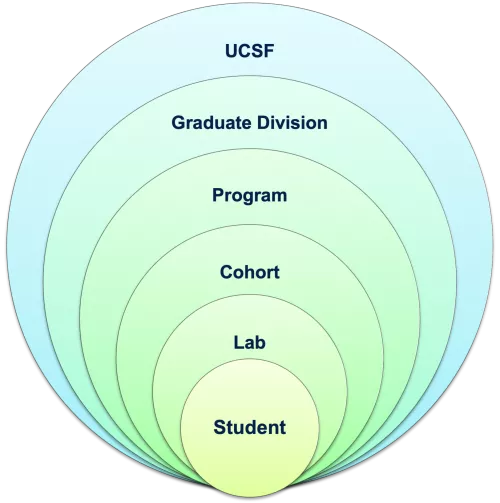Graduate Education and Postdoctoral Affairs’ mission includes leading efforts that establish and promote an inclusive learning and training environment for trainees, especially for those who have been historically marginalized. All trainees at UCSF have complex identities, perspectives, and lived experiences, which they bring with them as they engage with various communities (see Figure 1). The past year has highlighted the importance of these communities for the connections, support, affirmation and sense of belonging they can provide. As such, Graduate Education and Postdoctoral Affairs is committed to helping trainees, staff, and faculty establish and/or strengthen these communities in order to foster an inclusive and supportive learning environment.
One of the primary communities that trainees engage with is the lab in which they do their research. The lab is also one of the most influential communities for trainees because of the nature of how they are embedded in the lab to do their research. As the head of the lab, PIs have a critical role in guiding and cultivating that community. However, faculty may feel ill-equipped to lead this community building work themselves.
The Graduate Faculty Development Program, in partnership with the Restorative Justice Practices program, is offering a new community building opportunity for faculty and their labs, which utilizes community circles grounded in restorative justice practices. Restorative justice practices helps UCSF create safer spaces for people to be brave and vulnerable in an open dialogue that facilitates belonging in the community.
Figure 1. Learners are part of multiple communities at UCSF. Image adapted from White and Nonnamaker, 2008.

